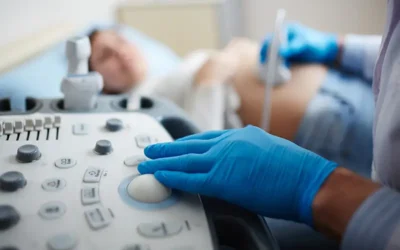Cutting-edge implantable medical devices represent a remarkable innovation, providing relief for a wide range of chronic conditions by restoring function and improving quality of life. These sophisticated devices, ranging from pacemakers, defibrillators, deep brain stimulators (DBS) and spinal cord stimulators to artificial joints and implantable lenses, are surgically placed in the body.
While implants were once considered a contraindication for safe MRI exams, today, careful MRI safety screening and personalized assessment can ensure implant safety. However, while MR imaging causes no pain and, no known tissue damage, assessing patients for implant safety in MRI requires additional time, expertise, and effort. Led by the American College of Radiology (ACR), the American Medical Association (AMA) introduced six MRI safety codes in 2025 to help technologists, medical physicists, physicians, and/or other qualified healthcare professionals (QHP) report this extra work.
Modern implants are designed to withstand the challenges of the MR environment. MRI safety codes designate how medical devices and implants interact with the MRI environment, helping clinicians assess patient safety and select appropriate procedures. Understanding how to report these codes is crucial for providers to ensure patient safety and proper reimbursement for the extra work involved in preparing patients with implants or foreign bodies for MRI. Partnering with a radiology coding company can help maintain accuracy and safety compliance.
When to Report MRI Safety Codes
The MR safety CPT codes were developed to capture the additional work involved in:
- Performing and planning MRI exams for patients with implants or foreign bodies that pose a high risk of interaction with the MR environment.
- The technical component — including the time and effort of MR technologists and medical physicists in carrying out and documenting safety tasks.
- The professional component — representing the physician’s work in overseeing and reporting these activities.
- Only when additional work is required beyond the routine safety workflow — such as managing MR conditional implants needing special precautions, unlabeled implants, or those typically contraindicated for MRI.
These codes should not be used:
- To report routine safety screening performed for all MRI patients, as it is already included in the exam reimbursement.
- For every patient with implants or foreign bodies, since not all cases require additional safety work.
What are the MRI Safety Codes and What do they Mean?
In 2025, six new CPT codes were introduced under a new heading of “Magnetic Resonance Safety Implant/Foreign Body Procedures, each with specific meanings and usage requirements:
- 76014–76016 for Pre-MRI planning
- 76017–76019 for Work Performed Day of the MR exam
Pre-MRI Planning Safe Codes 76014–76016
Codes 76014–76016 are typically used to describe the work performed on a date prior to the MRI exam.
- 76014 (MR safety implant and/or foreign body assessment) covers the first 15 minutes of clinical staff work involved in identifying and verifying implant components, reviewing MR requirements, contacting the patient with implant-specific instructions before the exam, and documenting a written summary in the medical record, including any MR contraindications.
- 76015 is an add-on code for each additional 30-minute period of magnetic resonance (MR) safety implant/foreign body assessment by trained clinical staff, after the initial 15 minutes covered by CPT code 76014.
Both 76014 and 76015 represent technical component-only services and do not include physician work. Code 76015 may be reported up to three times per encounter.
- 76016 (MR safety determination by a physician or qualified healthcare professional) is an additional code used for planning an MRI when safety concerns require physician involvement. It is not intended for routine use but applies when MR requirements are unclear, the exam poses potential risk, or the diagnostic value may be affected by an implant or foreign body. Examples include cases involving abandoned leads, nonfunctioning implants, or devices placed in unexpected anatomical locations that have not been tested for MR safety.
This code covers the physician’s review of the patient’s case, consultation with a medical physicist on potential risks and mitigation options, and a risk–benefit analysis of performing the MRI. The findings, recommendations, or alternative test suggestions must be documented in a written report.
MR Safety Codes 76017–76019 – Additional Work Performed Day of the MR Exam
Safely performing an MRI in patients with implants, foreign bodies, or other safety concerns may require additional work on the day of the exam beyond routine imaging tasks. Codes 76017, 76018, and 76019 are used to report this extra safety-related work.
- 76017 MR safety medical physics exam customization – This code is used to report MR safety medical physics examination customization, planning, and performance monitoring by a medical physicist or MR safety expert, with review and analysis by the physician or qualified health care professional. CPT code 76017 applies when a medical physicist or MR safety expert actively customizes and oversees the MRI exam on the same day it is performed, including real-time safety adjustments for patients with implants or foreign bodies.
- 76018 MR safety implant electronics preparation – Extra time and effort to program an implant’s electronics into a safe mode for the MRI, which is performed in the MR suite. Modifying device settings to minimize interactions with the MR environment must be done under the supervision of a qualified physician or QHP
overseeing the MRI. The supervising physician or QHP must also document the device modification in the medical record. - 76019 MR safety implant positioning and/or immobilization– Extra time and care to properly position or immobilize an implant during the MRI exam to ensure safety. For example, a cochlear implant may be compression-wrapped before an MRI, following the manufacturer’s instructions. Implant immobilization or positioning is performed on the day of the exam under the supervision of a physician or other qualified healthcare professional (QHP).
Codes 76017, 76018, and 76019 are modular and may be billed together when an implanted device requires more than one of the associated services.
Ensuring Accuracy and Compliance in MRI Safety Reporting
All patients must undergo a safety evaluation before MRI to identify potential interactions between the magnetic fields and the patient. Assessing medical device compatibility with MRI is crucial to ensure patient safety and prevent device malfunction during scanning. The MRI safety CPT codes should be used only when the safety evaluation requires additional work beyond standard procedures, not for routine MRI assessments.
Following MRI safety guidelines for implants and devices helps clinicians determine whether an MRI can be performed safely and what precautions are necessary. Technology-enabled, AI-driven radiology coding services can ensure accurate and compliant reporting of the extra time and effort required by radiologists, physicians, medical physicists, and MR technologists to protect patients and uphold MRI safety standards.
Learn how we can support your medical coding needs.




